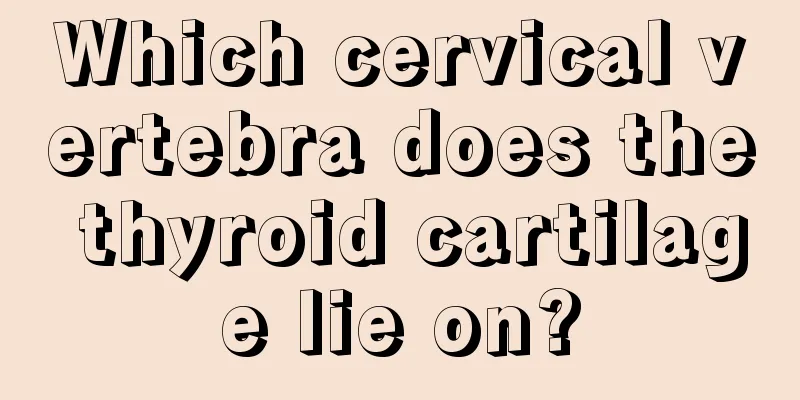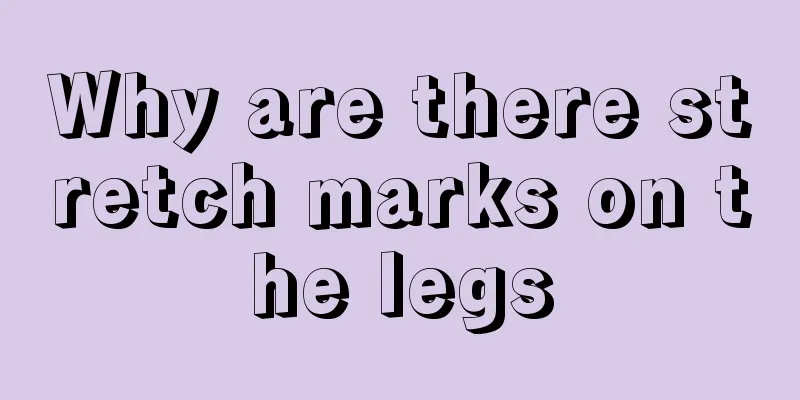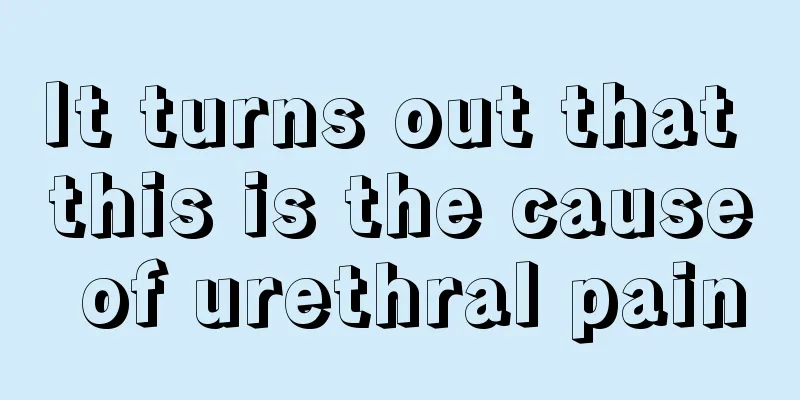Which cervical vertebra does the thyroid cartilage lie on?

|
There are many different bones around the human cervical spine because the cervical spine is a particularly large joint tissue and the role it plays is very important to the human body. The thyroid cartilage is a bone located in front of the cervical spine, and its location is mainly around the human throat. However, the thyroid cartilage is also prone to disease problems, which are often caused by cervical spondylosis. So which cervical vertebra does the thyroid cartilage bone lie flat against? Surface landmarks and projections of the neck and their clinical significance. 1. Body surface signs Hyoid: Located on the upper front of the neck, at the level of the third cervical vertebra, connected to the hyoid bone by the thyrohyoid membrane. The body of the hyoid bone and the greater horn of the hyoid bone can be palpated subcutaneously. The upper edge of the greater horn of the hyoid bone is the landmark for exposing the lingual artery. Thyroid cartilage: Below the hyoid bone, the front edges of the thyroid cartilage plates on both sides form the Adam's apple above the midline. There is an upper notch on the upper edge of the Adam's apple. The upper edge of the thyroid cartilage is level with the fourth cervical vertebra, and the common carotid artery bifurcates and the external carotid artery and the superior thyroid artery arise at this plane. Cricoid cartilage: Below the thyroid cartilage, at the level of the 6th cervical vertebra, it is connected to the thyroid cartilage by the cricothyroid ligament. This ligament is located below the Adam's apple. In clinical practice, tracheal mucosal anesthesia or temporary rescue for asphyxiation can be performed through puncture of this ligament. In this plane we have: 1. Cricoid cartilage 2. Middle cervical ganglion of the sympathetic trunk; 3. The pharynx and larynx are connected to the esophagus and trachea respectively; 4. The vertebral artery penetrates the transverse foramen; 5. Carotid tubercle is the anterior tubercle of the transverse process of the 6th cervical vertebra. It is located on both sides of the cricoid cartilage and slightly below the midpoint of the anterior edge of the sternocleidomastoid muscle. Pressing the common carotid artery towards the carotid tubercle can stop bleeding in the head and face. Clinical Points 1. Cricothyroidotomy When sudden suffocation is caused by laryngeal or laryngeal reasons, such as laryngeal foreign bodies, laryngeal edema, laryngeal spasm and laryngeal tumors, a simple measure to relieve suffocation is cricothyroidotomy. It can usually be completed within tens of seconds, saving the patient's life. 2. Tracheotomy The site of tracheotomy is usually between the 2nd and 4th tracheal rings, which is covered by the isthmus of the thyroid gland. If the scalpel is inserted directly into the trachea, it will inevitably damage the isthmus of the thyroid gland and cause bleeding. Blood flowing into the trachea further aggravates suffocation. There are no important blood vessels and nerves before the cricothyroid membrane except for the skin, platysma and strap muscles. The isthmus of the thyroid gland generally does not reach this height, so direct puncture will generally not cause severe bleeding. There is thyroid cartilage above the cricothyroid membrane and a cricoid cartilage protrusion below. It is clearly marked and superficially located, so cricothyroidotomy is the easiest to perform. h: hyoid bone, g: thyroid cartilage, e: cricoid cartilage, d: tracheal cartilage, f: cricothyroid membrane, j: thyroid gland, c: sternocleidomastoid muscle, i: common carotid artery, b: clavicle Tracheal cartilages: The tracheal cartilage can be felt below the cricoid cartilage, and the thyroid isthmus is in front of the 3rd and 4th tracheal cartilages. Jugular notch: Also known as the suprasternal notch, it is level with the lower edge of the second thoracic vertebra. Above this place is the suprasternal space, and the deeper layer in children is the upper part of the thymus, which may include the superficial inferior thyroid artery, the lowest thyroid artery, and the inferior thyroid vein. |
<<: Exercises to mobilize the cervical spine
>>: Is it good to play badminton if you have cervical spondylosis
Recommend
The correct way to wash clothes with lemon water
Drinking some lemon water on a regular basis can ...
What are the symptoms of bile reflux?
Bile reflux is very common in some serious gastro...
Can poor kidney function lead to obesity?
If a person has poor kidneys, the body's wate...
Is yeast harmful to the body?
Yeast is what many people use to ferment flour in...
Nail polish allergy symptoms
I believe that many girls who love beauty have bo...
How to detoxify hormone-induced face naturally
Many female friends have developed hormone face a...
Diagnostic criteria for chronic cor pulmonale_The main basis for diagnosing early cor pulmonale is
Cor pulmonale is a disease that affects both the ...
Will eating too many grapes cause diarrhea?
Many people in life have had this experience: dia...
Skin cancer is mostly treated with surgery
Skin cancer is usually treated surgically, and so...
How long can buried suture double eyelids last? It turns out there are such advantages
Compared with double eyelid surgery, buried sutur...
What are the early symptoms of prostate cancer?
In the early stages of prostate cancer, most pros...
What are the hazards of genetically modified oil
Genetically modified oil is quite common in our l...
It hurts when I press the edge of my fingernail
The main function of nails on the human body is t...
How effective is autologous fat buttock augmentation?
Autologous fat buttock augmentation technology is...
Blisters easily form on feet
If you have smelly feet, when choosing shoes, you...









